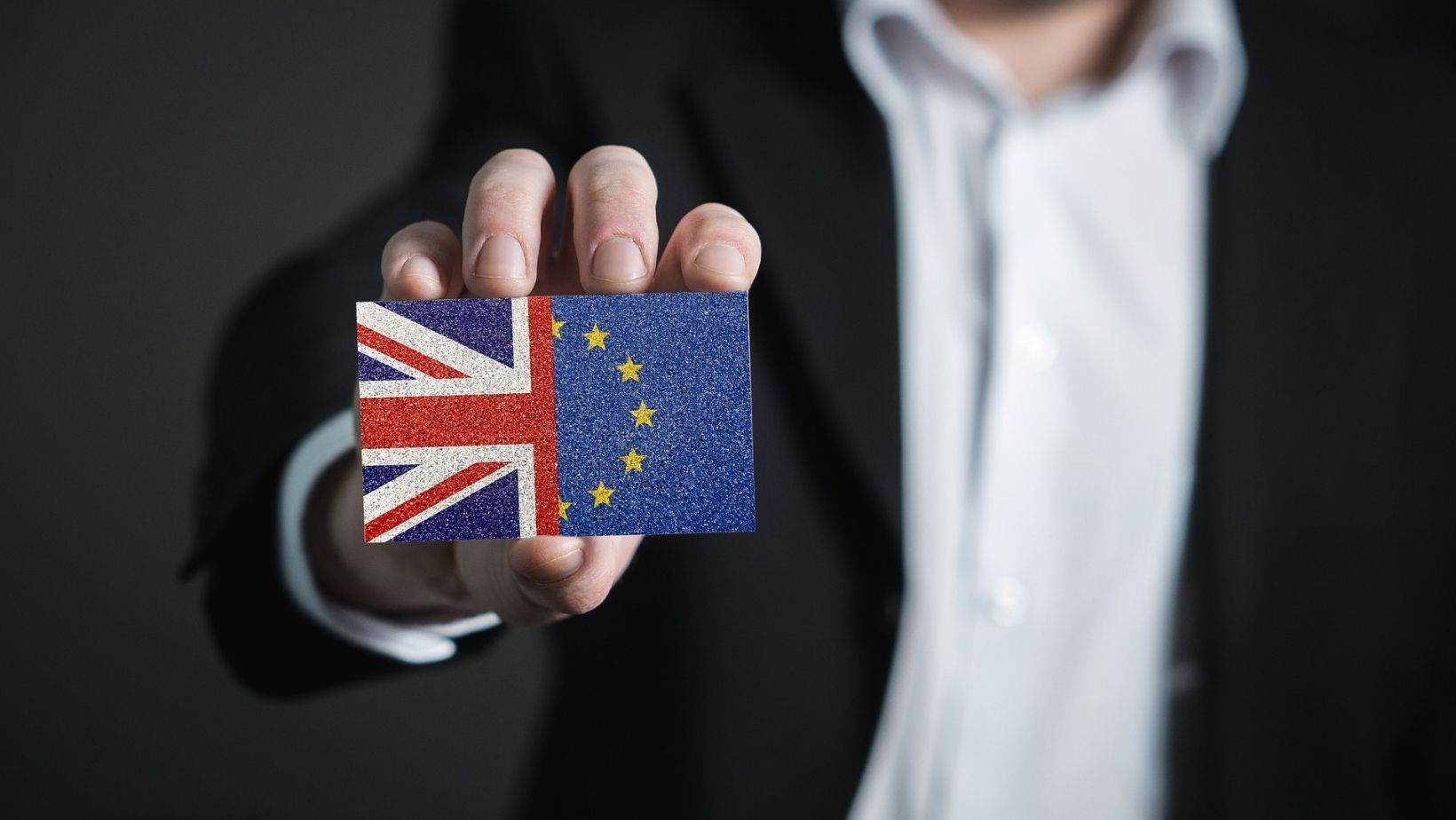The United Kingdom officially left the EU on 1 January 2021. The exit was drawn-out and chaotic. It was also uncertain for a long time whether the UK would manage to strike a deal with the EU or not.
Therefore, it is no wonder that many British nationals living in Czechia or planning on living in Czechia still aren’t sure what the rules and obligations are. The COVID-19 crisis has complicated matters even more.
Are you a British citizen living in Czechia? The following article aims to help you find some sense in the chaos.
Visas and Residency
Were you a legal resident of the Czech Republic prior to 1 January 2021? According to the Ministry of the Interior website, if you had the right to free movement before Brexit, there is not much that changes for you post-Brexit. You get to keep your existing residence rights on the basis of the Withdrawal Agreement. However, you need to obtain a residence document by reporting your residence to your local office of the Ministry of the Interior by 31 December 2021.
To report, you’ll need a residence permit. This means either a certificate of temporary residence (for citizens staying longer than 3 months) or a permanent residence permit (for citizens staying for more than 5 years) to prove the legality of your residence. Both permits need to have been issued before 1 February 2020.
Residence documents issued after this date need to have an “EU Withdrawal Agreement” stamp on page 2 for a temporary residence certificate and page 4 for a permanent residence permit.
If you are seeking these documents now, you should expect longer examination processes as all the evidence needs to be scrutinized to prevent fraud. For your own peace of mind, you should acquire all the necessary documents as soon as possible. That being said, if you do not manage to do it by the deadline, you are still protected under the Withdrawal Agreement.
If you are a holder of a certificate of temporary residence or a permanent residence permit, you should also apply for a new biometric card within one year of its introduction. According to Brexitinfo.cz, these will be issued from 2 August 2021.
Did you only come to the Czech Republic after the end of the transition period (in 2021)? Then you are considered a third-country national. A third-country national is someone who is from a country that is not a member of the EU nor a national of Iceland, Lichtenstein, Norway, or Switzerland.
For trips and short-term stays for up to 90 days for tourism or business purposes, you’ll need to apply for a Schengen Visa. If you’re planning on staying in the Czech Republic for a period exceeding 90 days, however, you’ll need a long-term visa or a residence permit, same as other third-country nationals. Family reunifications are possible in accordance with the standard rules for third-country nationals.
If you’re planning on moving to Czechia post-Brexit, make sure you know the rules.
Becoming a Czech Citizen = Becoming an EU Citizen
Would you like to become a Czech citizen? Once you do, you will also – once again – become an EU citizen. After three to five years of permanent residence in Czechia (regardless of coming here pre- or post-Brexit), British citizens can apply for Czech citizenship. Again, once you’ve become a Czech citizen, you automatically become an EU citizen as well with all of the advantages and travel freedoms.
Travelling in and out of Czechia
Although the conditions for travel aren’t likely to improve any time soon, based on the current epidemiological situation, things may improve in the future. Therefore, it’s good to know what you’ll need in order to travel in and out of the Czech Republic.
Remember to always carry your residence permit and valid travel documentation. If you don’t yet have a residence permit, make sure to carry some other document that would prove your status – e.g. a tenancy agreement, a utility bill issued in your name, or any other document issued in 2020 or later.
Obtaining and carrying your permanent residence permit. Once you obtain this document, you don’t need to worry about carrying any other documentation to prove your residency.
You should, however, stay on top of the validity of your travel documents. Your passport must have at least six months left on it before the expiry date to travel to most EU countries.
Brexit and COVID-19
Be mindful of Czechia’s current travel restrictions when considering travel from and back to the Czech Republic. As of 1 January 2021, British citizens may not be able to travel to the EU of Czechia with the exception of justified cases.
You should also keep an eye on the traffic-light map on the Ministry of Health of the Czech Republic website showing the list of countries according to the level of risk. If you do not possess a residence permit and the reason for your travel doesn’t fall under justified cases, you may not be able to travel to Czechia at all.
And what about the COVID-19 vaccine? British citizens should get vaccinated in the country where they currently reside. In other words, you should get vaccinated in Czechia. You should be eligible to receive your vaccine here in accordance with the vaccination rollout plan. Once you are eligible to get the shot, you will be able to register for it.
Make sure your health insurance is in order because you will need your health insurance number to register for your vaccine. According to GOV.UK, you will input this number in place of the Czech birth registration number. Your health insurance number can be found on your insurance card.
Working or Studying in Czechia
Do you want to work in Czechia? If you were a legal resident before 1 January 2021 and are planning to remain a legal resident, you have the right to work here.
According to the Ministry of Labour and Social Affairs, if you want to come work here after 1 January 2021, you need to apply for an employment permit and residence permit before coming to Czechia.
Whether you’ve worked here pre- or post-Brexit, you may also need to obtain a UK criminal records certificate (a certificate that details whether you have a criminal record in the UK) or/and an extract from the Czech Criminal Register (which you can get at most post offices by visiting a Czech POINT). You may also need a visa.
Are you planning on coming here to study? Make sure all of your visa requirements are met. The best way to make sure that you fulfil all the obligations is to be in regular contact with your university and ask them about possible fees, as these may differ post-Brexit.
The United Kingdom will no longer be participating in ERASMUS programmes post-Brexit.
Driving Licence
Are you planning on driving a car in Czechia? For short-term stays, you can keep on using your UK driving licence. However, if you are resident in Czechia, make sure to exchange your UK driving licence for a Czech driving licence issued in the Czech language within 3 months.
Do keep in mind that this can only be done after you’ve been living in Czechia for 185 days, however. Driving licences can be exchanged by showing at least two documents proving you are a resident here. This can be e.g. your permanent residence permit, lease agreement, property ownership listing, your employment contract, etc.
Don’t worry, you will still be able to use your new Czech driving licence in the UK for short-term visits.
As you can see, although the rules and obligations may seem chaotic at first sight, once you put all the information together, the path to a safe and healthy life in Czechia becomes much clearer. Still confused? One company that specializes in helping expats in the Czech Republic make sense of the often-confusing post-Brexit world is Foreigners. Visit their blog to read the latest on Brexit and expats in Czechia. These include:
· Brexit: Obligations for British Citizens Living in the Czech Republic
· The Never Ending Story of Brexit; Permanent Residence Permit and Updates for UK ‘Latecomers’
· Obligations of British Citizens after Brexit
· Validity of British Driving Licences in Czech Republic after Brexit
You can also check the official Brexit mind-map issued by the Czech Ministry of the Interior.
Are you still unsure and need further assistance? Foreigners specialise in helping expats in need! Contact them or use their consulting service. You can also subscribe to their newsletter to keep up with the latest English-language Czech news for expats.
-
NEWSLETTER
Subscribe for our daily news











